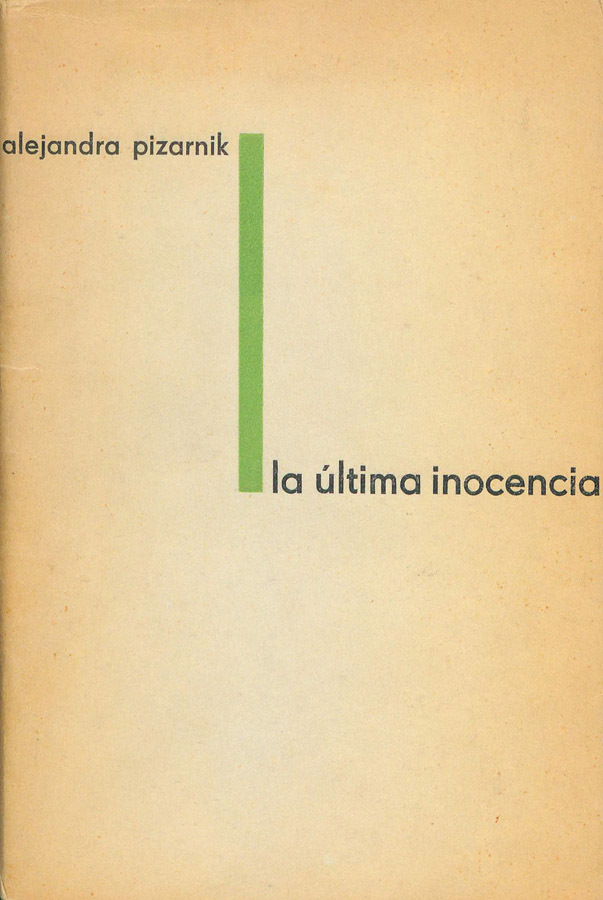
La última inocencia
1956
First Published
4.15
Average Rating
45
Number of Pages
Alejandra Pizarnik a vingt ans lorsqu’elle publie en 1956, à Buenos Aires, son deuxième livre de poèmes, La dernière innocence. Vite elle décidera de le considérer comme son premier et il figurera toujours en tête de sa bibliographie. Si La dernière innocence n’est pas son tout premier livre, c’est celui avec lequel elle veut débuter et entrer en poésie : elle va au bal avec Rimbaud : « La dernière innocence et la dernière timidité ! C’est dit ! Ne pas porter au monde mes dégoûts et mes trahisons » (in « Mauvais sang », Une saison en enfer). C’est alors son programme sans être un manifeste, tout en ayant des couleurs surréalistes comme elle n’en aura guère plus tard.
Avg Rating
4.15
Number of Ratings
284
5 STARS
40%
4 STARS
39%
3 STARS
19%
2 STARS
2%
1 STARS
1%
goodreads
Author

Alejandra Pizarnik
Author · 28 books
Born in Buenos Aires to Russian parents who had fled Europe and the Nazi Holocaust, Alejandra Pizarnik was destined for literary greatness as well as an early death. She died from an ostensibly self-administered overdose of barbiturates on 25 September 1972. A few words scribbled on a slate that same month, reiterating her desire to go nowhere "but to the bottom," sum up her lifelong aspiration as a human being and as a writer. The compulsion to head for the "bottom" or "abyss" points to her desire to surrender to nothingness in an ultimate experience of ecstasy and poetic fulfillment in which life and art would be fused, albeit at her own risk. "Ojalá pudiera vivir solamente en éxtasis, haciendo el cuerpo del poema con mi cuerpo" (If I could only live in nothing but ecstasy, making the body of the poem with my body).